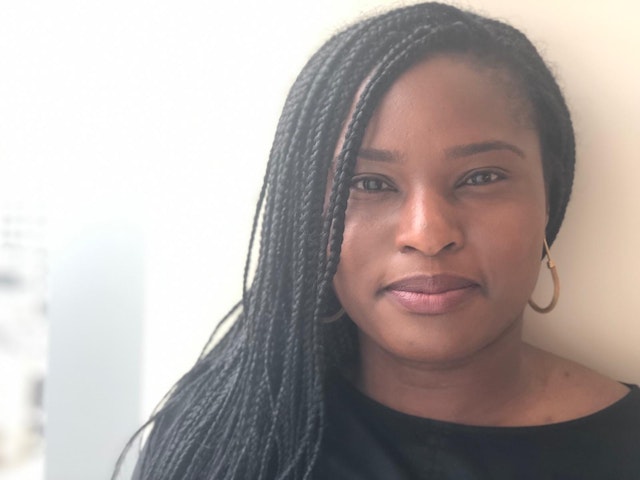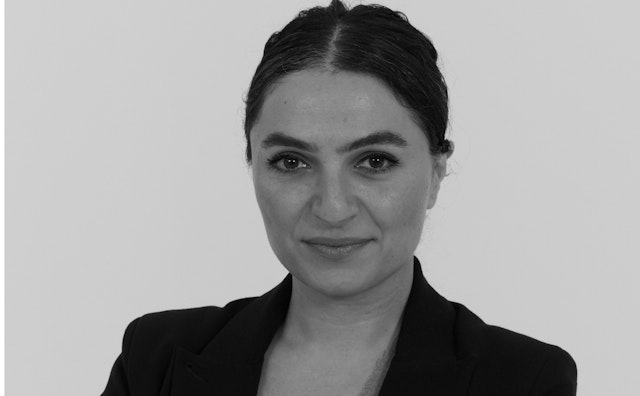Here’s what agencies are doing about UK industry’s ethnicity pay gap
Following data showing the UK ad industry’s ethnicity pay gulf widening, we ask agencies how they’ve managed to close their own gaps.

The gap between average pay for white and non-white UK agency staff has widened recently / Unsplash
According to the latest IPA Census survey – a huge annual survey of the UK’s advertising sector – the gap between the average pay of white and non-white staff grew wider in the last 12 months, reversing the slow progress made in recent years.
It’s likely that change reflects the layoffs made across the industry in recent months, which are likely to have disproportionately affected non-white staff. It also reflects the reality that recruitment pushes intended to make the advertising business as diverse as the public it targets have not resulted in more non-white senior leadership at UK agencies.
With those points in mind, we went to a range of agencies and recruiters to discuss what more they believe can and should be done.

Commit to promoting staff from diverse backgrounds
Sharon Annafi, head of diversity, equity and inclusion, Havas UK: “Data transparency and accountability are critical. Our investment in data analytics and the construction of a diversity dashboard are helping us measure the impact of our actions, set and evaluate our goals, and make evidence-based decisions. That is enabling us to monitor our gender pay gap, and our new pay transparency framework instituted last year will help our pay gaps further. But we aim to go further, and cultivating a culture of inclusion and allyship across our organization is really important to us. Emb[race], our race and ethnicity ERG, is doing brilliant work here. Our recruitment partners, such as POCC, provide diverse shortlists for targeted roles and we build diverse talent pipelines. Importantly, we ensure our people have the right opportunities to support their development and monitor our promotion processes to ensure diverse talent not only applies but stays with us and progresses their career.”
Advertisement
Kara Osborne, UK & Ireland chief executive officer, UM: “Agencies are OK at attracting diverse talent, the problem is far too many talented individuals from diverse backgrounds leave earlier than other groups because they don’t see a path to leadership. To solve the ethnicity pay gap, we need to create environments where people who aren’t white believe they can progress – to see they can become leaders. More visible leaders of color mean more mentors to encourage and support upcoming talent, so it becomes self-fulfilling. UM’s practical framework includes mentoring schemes and partnerships (like the Creative Equals Accelerate program that UM has incorporated), all underpinned by targets that measure and manage our progress.”

Take a different approach to salary negotiations
Pamela Uddin, managing partner, Re:act: “Growing up with an Irish mum and Pakistani dad, I witnessed the ethnic gap firsthand. Our dream during the high-growth phase of the business journey was to work to close this gap. Now, 40% of our workforce is from ethnic minority backgrounds.
“During the hiring process, we avoid things like making a university degree a necessity – ensuring openness to all educational backgrounds. Alongside this, specific salary banding based on experience helps us to eliminate unconscious bias in interviews. We prioritize placing diverse individuals in management positions – with three of our first six leaders coming from these backgrounds. We provide personalized and specialized training to encourage our teams, showcasing our commitment to inclusivity and success.”
Joanne Lucy, managing director, Major Players: “We don’t ask our candidates to divulge their salary history in a bid to cut pay gaps and improve equality across the creative industries. We believe asking for a salary history can perpetuate pay inequalities and hinder those from minority groups across gender, ethnicity, sexuality, disability and neurodiversity.
“Every year, we produce our industry-leading Salary Census and, regrettably, last year’s showed that those from ethnic minority groups could earn up to £20,000 less than their white counterparts. By making this simple change to the hiring process, it levels the playing field and ensures talent are paid fairly based on their skills, experience and ability to do the job, not on their perceived worth or ability to negotiate.”
Advertisement
Sandra Masiliso, global diversity, equity and inclusion lead, Dept: “Implementing transparent salary structures, conducting regular pay equity audits, and promoting inclusive and targeted hiring practices are crucial steps. Additionally, fostering a culture of mentorship and sponsorship for underrepresented talent helps create pathways to leadership.
“Proactive efforts to retain and develop diverse talent, such as targeted coaching and learning programs, provide opportunities to build a pipeline into leadership positions, which can support organizations with constructing leadership teams that genuinely mirror the diverse audiences we serve. This isn’t a quick fix, however. This is an exciting journey towards meeting longer-term aspirations of turning the dial on ethnic/racial diversity within the workplace.”
Annie Bleisnick, director of people operations, MKG: “MKG strives to build a team where every employee can expect fair treatment and equal opportunities whatever their ethnicity, religion, gender identity, physical ability, sexual orientation or age. We work to establish a retention strategy for all. This includes increasing recruitment efforts outreach – attending student fairs, participating in the BLAC internship program, a paid internship for the new generation of Black creatives and investing in a salary planning solution tool allowing us to regularly pull data to understand what other agencies of similar scale, size and location are compensating and making salary adjustments to ensure equity and inclusion are paramount.”
Suggested newsletters for you

Keep on talking
Roshanak Fatahian, diversity and inclusion director, Nord DDB: “The long and the short on closing the ethnicity pay gap is that, as people of color are discriminated in the industry, the work needed is both short and long term. Here’s what we’ve learned. Know what background and privileges do to someone’s career. Don’t shy away from these questions, including the pay gap. Expand your network. Inspire creators, strategists and leaders who might not think of advertising as their career path. And make sure they know their worth. Partner with schools and show that their students belong at your organization. Kids start steering their careers at the age of 14. Make sure you are top of mind in 10-15 years.”
Jess Parker, director, Craft: “The creative industries need to encourage, embody and empower diversity of talent at every level. The most powerful way we can encourage change is to share knowledge and keep talking. We see the US as ahead of Europe in terms of attracting and embracing a diverse workforce, but organizations such as ‘Where are the Black Designers?’ are paving the way for change in the UK.
“The best agencies provide transparent stats on the ethnic make-up of their business to invite grassroots talent from underrepresented backgrounds through their doors. Craft partners with inclusive careers resource Creative Lives in Progress to transform the way emerging talent accesses the creative industry. Together, we can make a difference not only to individuals and our industry; BAME equality could boost the UK economy by an estimated £24bn.”
Justin Roberts, associate vice-president of the diversity, equity and inclusion center of excellence, Kepler: “The simple answer is also the least satisfying – it will take more time to effectively close that gap than a few years allows for. The loss in progress is disappointing, but it underscores the need for equity-focused work to continue. Something I find encouraging about our current state is that organizations today have a firmer understanding of what works (diversified recruiting partners, robust coaching and mentorship programs, more inclusive and empathetic leadership strategies) than we did four years ago. We should be pushing to invest further into more of those types of solutions.”

